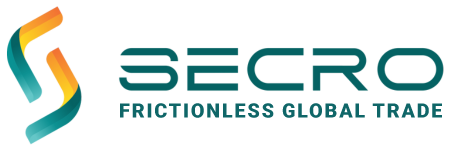Legacy E-Bills of Lading Traditional e-bills of lading, introduced by various providers since the early 2000s, base their legal validity on a private multi-party agreement known as the “rulebook.” Despite their potential, these legacy e-bills have seen limited adoption, with a…
Quantitative Analysis – Improving CCF, RWA, WACC with Secro Tokenized Bill of Lading
In this analysis, we compared two scenarios for a bank’s $100 million portfolio of commodity trade finance loans: one where 100% of the portfolio is secured with Secro tokenized e-bills of lading (eBL) and another where only 70% of the portfolio…
Advantages for Borrowers Using Secro Tokenized eBL
Borrowers in commodity trade finance can significantly benefit from using Secro tokenized electronic bills of lading (eBL) over traditional paper-based bills of lading. Firstly, Secro tokenized eBL ensures faster processing times. The electronic transfer of title is instantaneous, reducing delays associated…
The ESG Impact of Electronic Bill of Lading
Electronic Bill of Lading (eB/L) represents a significant evolution in the shipping and logistics industry, moving from traditional paper-based documentation to digital formats. This transition is not just about improving efficiency and reducing costs; it holds substantial potential for positive environmental,…
Enhancing Compliance with the NIS2 Directive Through Electronic Bills of Lading
The Network and Information Security Directive (NIS2 Directive) aims to bolster the cybersecurity resilience and incident response capacities of organizations within the European Union. It emphasizes the importance of managing and mitigating cybersecurity risks, particularly in the supply chain. This whitepaper…
Secro eBL enables banks to increase control on the document of title and discharge process
This document addresses the implications of using electronic Bills of Lading (eBL) in banking, particularly concerning the control banks have over the discharge process and their liability. eBL enhances the bank’s ability to manage the discharge process without additional liability. The…
Secro eBL: A Scalable and Production-Ready Approach Towards Interoperability
Secro has developed a robust technology that ensures full interoperability with mainstream blockchain frameworks. This capability would allow Secro to seamlessly integrate with any blockchain-based electronic Bill of Lading (eBL) provider. Secro’s strategic initiatives and partnerships highlight its commitment to achieving…
Why create an account on Secro’s eBL platform
Shippers and Consignees should create an account on Secro’s eBL (electronic Bill of Lading) platform to ensure the legal validity and efficiency of the eBL process. To issue a legal eBL, all parties named in it, including Shippers, Consignees, and Carriers,…
Electronic Bill of Lading Charterparty clause: a short guide for Disponent and Head Owners
2014 BIMCO eBL clause does no longer seem to fit current market and increasingly prevents eBL digitalization rather than facilitates it. 2014 BIMCO Clause assumes simple Charterers’ option to request Owners to accept eBL against (outdated indemnity) that may be hard to accept by an…
The advantages of Secro Tokenized e-Warehouse Receipt
In trade commodity finance, different approaches to lending are influenced significantly by the type of warehouse receipt provided. Here’s how these approaches differ and why tokenized eWarehouse receipts offer a substantial advantage: Scanned Copy of Warehouse Receipt: In this scenario, the…










